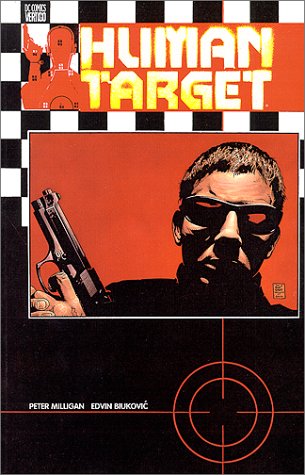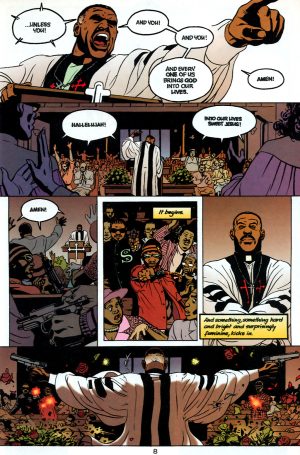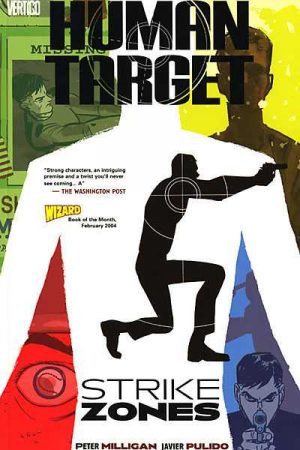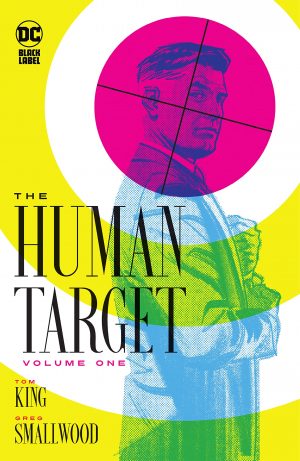Review by Frank Plowright
When conceived in the 1970s by Len Wein, the Human Target was Christopher Chance, a man who impersonated people marked for death, perhaps enabling them to avoid their fate. It never graduated beyond a novel back-up strip, but when reactivated by Peter Milligan the missions became a secondary consideration. Milligan’s interest is in the mental health of anyone who would take on such missions, and how they’d be affected by repeatedly endangering their own life.
Even that’s just a component of what still reads as a cracking story. Chance is shown embedding himself in the personalities of people whose lives he takes on, convincing, for instance as middle-aged African-American Earl James, reverend of a community blighted by drugs. After that Milligan begins investigating in both a literal and metaphysical sense just who Chance is.
Switches of tone and scenery are rapid, and Edvin Biuković supplies everything plausibly, if occasionally including too much in his panels. Better that, though, than skimping on what’s required. He’s good at differentiating the characters, and plays with light and shade as if an echo of Eduardo Risso, whose 100 Bullets series was earning raves around the same time Human Target was originally serialised.
The theme of identity is played throughout, with others under investigation, sometimes themselves sometimes masquerading as someone else, yet always with a line blurred between reality and short term otherness. Milligan even cheekily toys with the idea of scripted lives. Everything thrown into the mix has a bigger purpose, with people whose moment seemed temporary continuing to have a bearing on the plot. Smart little touches abound, such as the significance of Chance forgetting his name, or embedding himself so deeply into someone’s life an unrevealed truth comes to light.
Just who anyone is, and how easy it might be lose that under some circumstances is seen again and again, along with how easy it is to knowingly believe in deception. Milligan escalates the cast along different psychological paths to a central crisis point for the finale, and delivers a suitably action-packed ending that leaves the reader to join the final dots. Anyone who likes a complex, psychological crime story should pick this up.
When the Human Target became a short run TV show, this was repackaged along with the following Final Cut as Chance Meetings.





